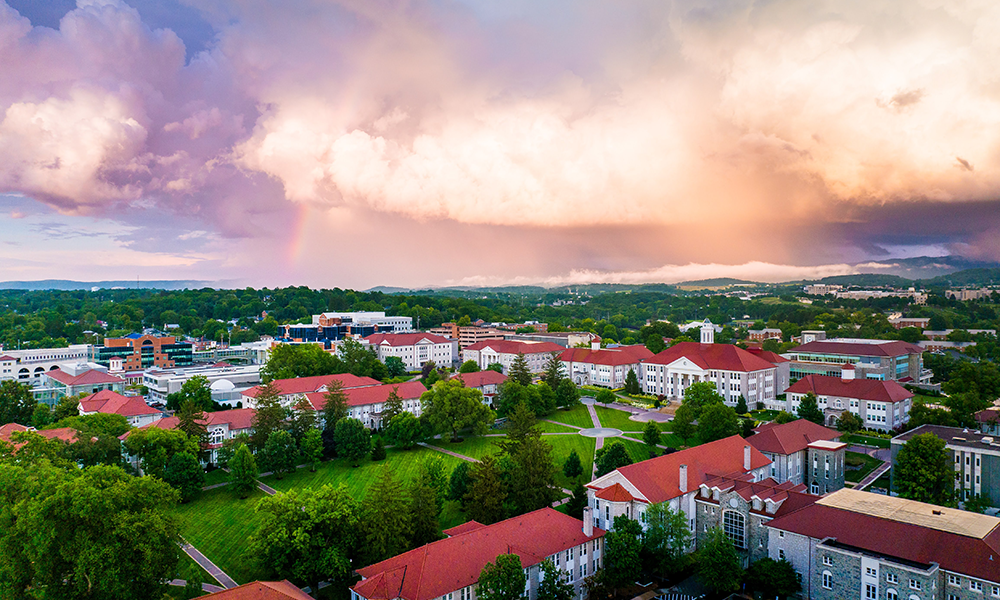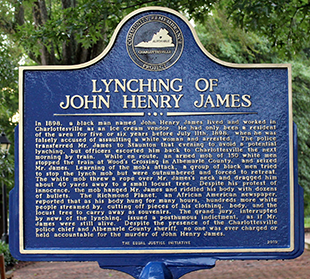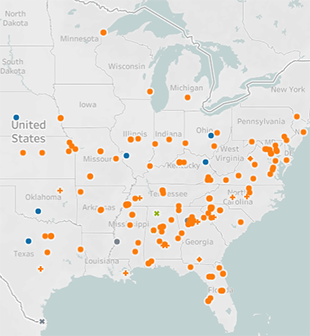A Liberal Arts Legacy Fund Teacher-Scholar
News
SUMMARY: The Liberal Arts Legacy Fund, established in 2012 by the college alumni board, supports projects proposed by “teacher-scholar” faculty who involve students substantially in their field-advancing research like Gianluca De Fazio, associate professor of justice studies.
The Liberal Arts Legacy Fund, established in 2012 by the college alumni board, supports projects proposed by “teacher-scholar” faculty who involve students substantially in their field-advancing research. Gianluca De Fazio, associate professor of justice studies, received the 2023 Legacy Fund Award to support his ongoing project on the history and legacy of lynching in Virginia in the research-intensive course JUST 400 – Senior Seminar on Lynching and Racial Violence.
Using a “flipped classroom” approach, where students researched individually or in groups, meant students “could rely on me and other students to ask questions, receive feedback and learn from each other the ‘tricks of the trade’ of finding and cataloguing these markers,” De Fazio said.

In Spring 2023, De Fazio organized his fifteen Justice Studies students into two research teams. The first team analyzed newly digitized and transcribed archival sources — such as death certificates, Coroner’s Inquisitions or Commonwealth Causes — related to Virginia lynching cases to update the posts on the Racial Terror: Lynching in Virginia website, which De Fazio designed and launched in 2018. De Fazio and his students collaborated with the Library of Virginia to publish the Lynching and Racial Violence Collection, making those records available to the public.
The second team began building the first comprehensive scholarly database of all U.S. historical markers that memorialize lynching victims. The record for each of the 149 catalogued markers includes an image of the marker along with its text, location, year erected and the organization responsible for its creation. Students also produced an interactive map of these historical markers. De Fazio developed all of these digital projects with expert help from Kevin Hegg, Head of Digital Projects in the JMU Libraries.

This course teaches students the value and practices of exploring material history; compared to other academic assignments, students say, this research “felt ‘real’ and akin to solving puzzles.” Moreover, the processes that follow — transcription, analysis, digitization, and curation — underscore the importance of these efforts for collective memory. “Knowing that all their work would be made public,” De Fazio says, “boosted their commitment and involvement in the project."
That close faculty-student engagement, where a student learns research skills and methods through applied experience, is precisely what the Legacy Fund was established to support.
